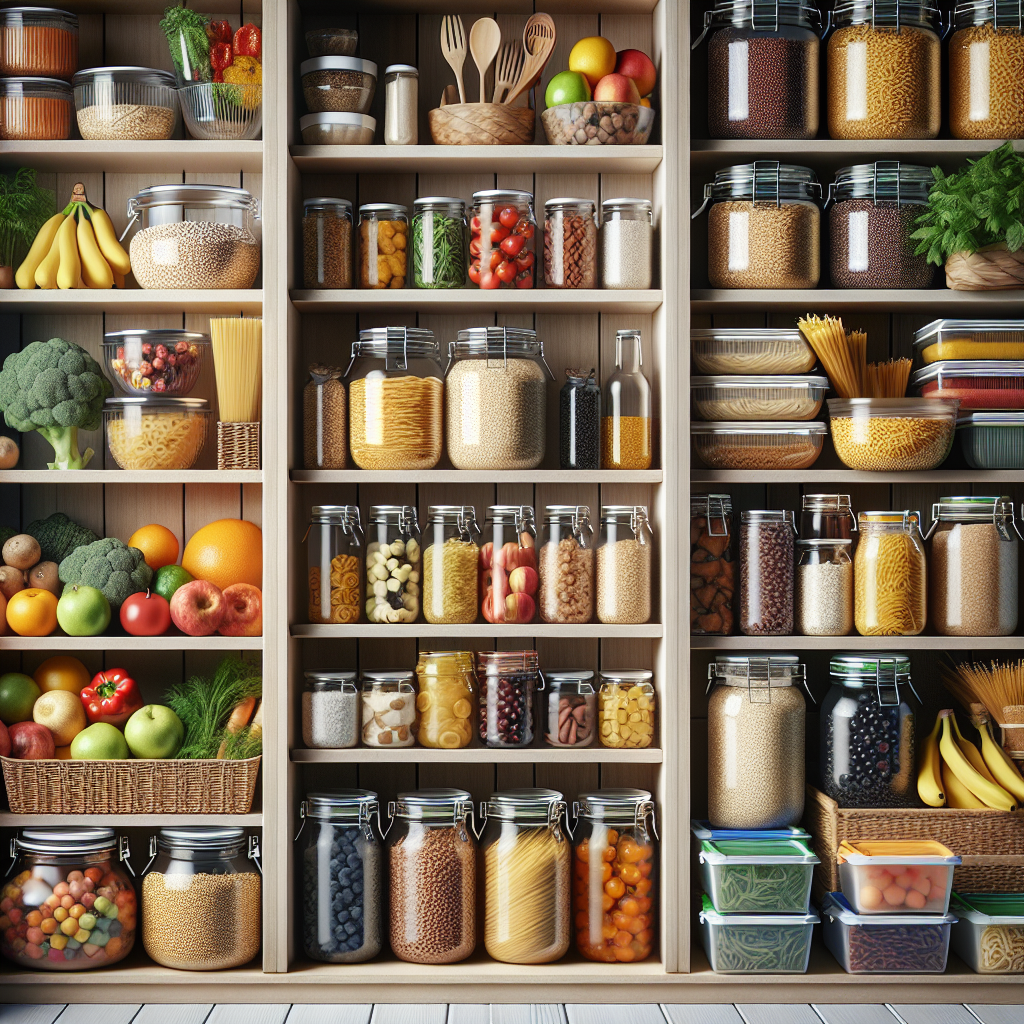1. Keep your refrigerator at the right temperature: Your refrigerator should be set at 40 degrees Fahrenheit or below to slow down the growth of bacteria. Make sure to check the temperature regularly and adjust it if necessary.
2. Store raw meats and poultry separately: Raw meats and poultry can easily cross-contaminate other foods if not stored properly. Keep them in a separate container or on a plate on the bottom shelf of the refrigerator to prevent drips from contaminating other foods.
3. Use airtight containers: Store leftovers and other perishable items in airtight containers to prevent the entry of air and bacteria. This will help keep your food fresh for longer.
4. Store fruits and vegetables properly: Some fruits and vegetables release ethylene gas, which can cause other produce to ripen faster. Store ethylene-producing items such as apples, bananas, and tomatoes separately from ethylene-sensitive items like leafy greens and berries.
5. Rotate your pantry items: When storing non-perishable items in your pantry, make sure to rotate them regularly. Use older items first and place newly purchased items at the back to ensure that everything is used before it expires.
6. Don’t overpack your refrigerator: Overpacking your refrigerator can restrict airflow, causing some areas to be warmer than others. This can lead to uneven cooling and potentially harmful bacteria growth. Keep your refrigerator organized and avoid overcrowding it.
7. Follow storage guidelines: Different types of food require different storage methods. Make sure to follow the storage guidelines provided on packaging labels or by the USDA to ensure that your food stays safe and fresh.
In conclusion, proper food storage is essential for maintaining the safety and quality of your food. By following these simple tips, you can prevent foodborne illnesses and spoilage, and extend the shelf life of your food. Take the time to organize your refrigerator and pantry, use airtight containers, and follow storage guidelines to ensure that your food stays safe and delicious. Remember, when in doubt, throw it out!

